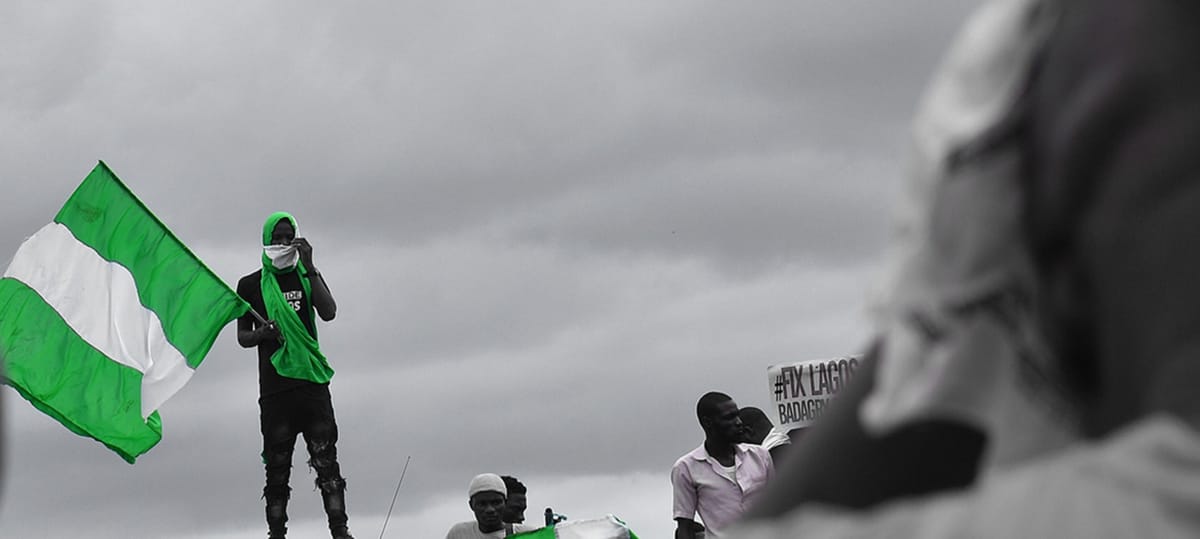What the #EndSARS Movement Means for the Future of Nigeria
What lit the collective fire in the hearts of the Nigerians of the homeland and the diaspora to end SARS for good?

Access the Audio Read version of this article directly on Spotify for Podcasters.
“The flame that was sparked from the need for change is not dying down anytime soon, as Nigerians are vowing to keep up the fight and the memories of their fallen comrades alive.”
For over two weeks in October 2020, the people of Nigeria took to the streets across the most populous African country and in the diaspora to protest police brutality and impunity carried out by the allegedly disbanded FSARS unit, helped by the hashtag #EndSARS and its many variations on social media. But do you know why? FSARS, or SARS as it is most commonly known, stands for Federal Special Anti Robbery Squad, which was set up in 1994 to curb the spread of armed robbery, kidnapping, and cultism in the multinational state. The squad was given autonomy from the regular police and was tasked to stand apart from police officers in communities, by wearing plain clothes. Just like anything unregulated, SARS having free rein in their duties became a problem, which worsened over the years as they became the very criminals they were set up to apprehend.
Amnesty International has documented at least 82 cases of torture, extrajudicial killings, maiming, extortion, and rape by SARS between January 2017 and May 2020. According to the organisation’s June 2020 report, victims held in SARS custody have been subjected to “mock execution, beating, punching and kicking, burning with cigarettes, waterboarding, near-asphyxiation with plastic bags, stressful bodily positions and sexual violence.” All these occurring despite Nigeria criminalising torture in 2017, with none of the offending officers arrested or prosecuted. Their attacks and illegal behaviour are mostly targeted at Nigerian youths, as SARS are known to stop anyone they see using a smartphone, driving a car, or generally looking modern (for example, sporting dreadlocks or a unique hairstyle), fashionable or dressed up.
It’s easy to see the reason behind the outrage. Although this isn’t the first time Nigerians have taken to the streets to protest police brutality. The uprising against SARS in 2020 was the most significant one in a long time, as it sparked on a larger scale than usual and took place in many nations across the country. The first protests began after a video showing SARs officials, allegedly killing a young man and running away from the scene of the crime, went rival and caused outrage when the whole state realised the “disbanded” SARS unit was very much still around and kicking.
I took to the streets and got online to talk to Nigerians in both the homeland and the diaspora, to discuss “Soro Soké” (speaking up in Yoruba) and as I wanted to find out what lit the collective fire in the hearts of Nigerians to call for an end to the killings this time around. This question brought on some interesting responses, from experiences to fears and overall tiredness.
I talked to Mrs Adejumo, a mother who despite a government crackdown on protests in Abuja, continued to protest against the brutality of the police. She relayed her fears for the safety of her children who are just as likely as any to be victims. "I have four sons, with three above the age of 18. I can never let my sons drive my car out alone, not even to pick up their brother, for the fear that something bad would happen because of these SARS officers” she shared.
“I've heard stories and seen videos of this brutality; my son’s friend was recently brutalised by these men” Mrs Adejumo continued. “That's why I support the youths and this revolution. I'm old and cannot be on the protest ground, but I can pray for them and support them". She went on to recount her experience growing up and how the system has gotten progressively worse.
A dear friend of mine who was actively in the streets (and who preferred to remain anonymous) recounted an encounter he and his brother had late last year with the police: “We went out in our father’s car as we usually do and were on our way back home, not too far from our junction when we were stopped. I tried to act cool as they asked my brother out of the car, and attempted to use my phone to video but an officer noticed and cocked his gun at me. That was the most traumatic experience of my life” he said. How could I not come out and speak up, when my younger sisters could be victims of police abuse if this continues? They’re still too young to fully understand what is happening, but this is for them”.
A resounding theme shared by all the people I asked was one of determination not to have to live in fear of men with God-complexes and automatic rifles. A young man named Stanley said: “This movement is to tell them we’re no longer afraid, that we’re awake now. They say we’re Lazy Nigerian Youths? Well watch us and see. How can I live somewhere that’s constantly trying to stifle my potential or kill me? These people don’t care about us. Imagine these men pointing their gun at me while my children are in the car.”
Throughout interviews, I could picture the atmosphere of tension like a powder keg waiting for a match. These protests and the subsequent Lekki massacre that took place on 20 October 2020 have solidified Nigerians in their stance for a new government, one that has the interest of the people at the core of its agenda. The flame that was sparked from the need for change is not dying down anytime soon, as Nigerians are vowing to keep up the fight and the memories of their fallen comrades alive. And the movement might very well affect the outcome of the 2023 presidential election. How significant the change will be is yet to be discovered.





